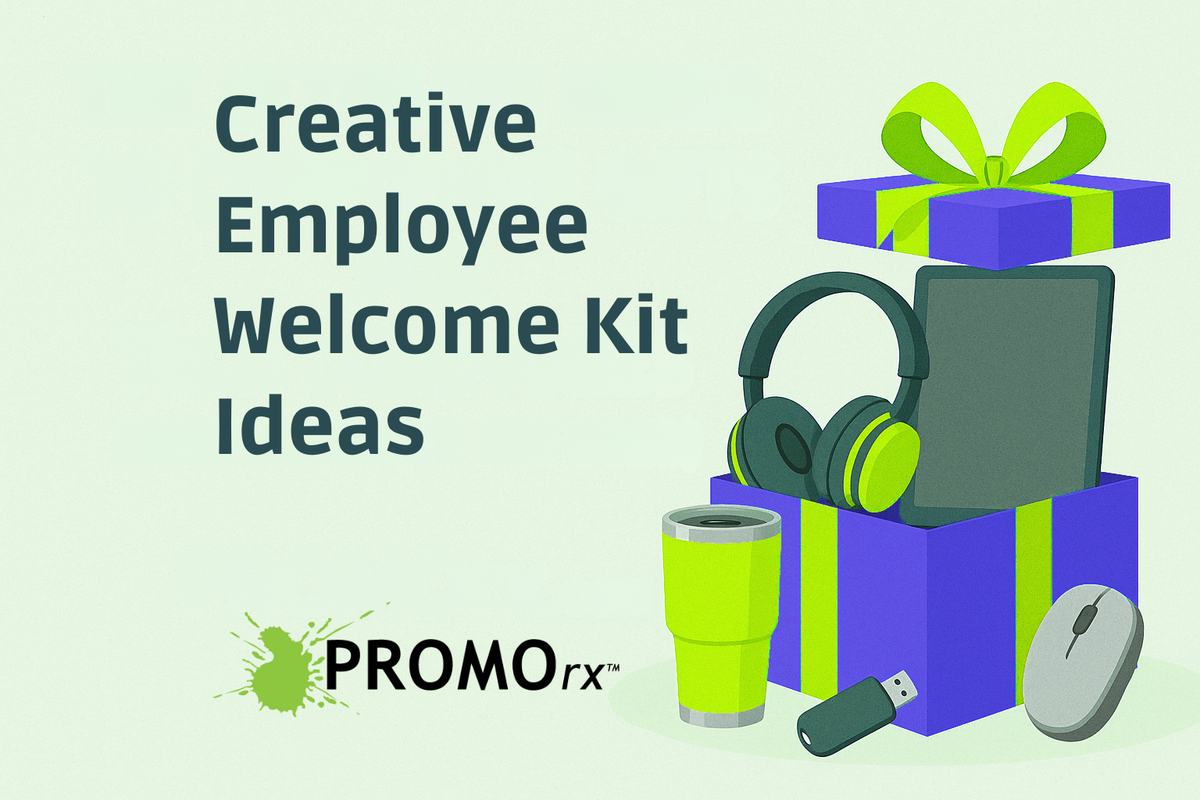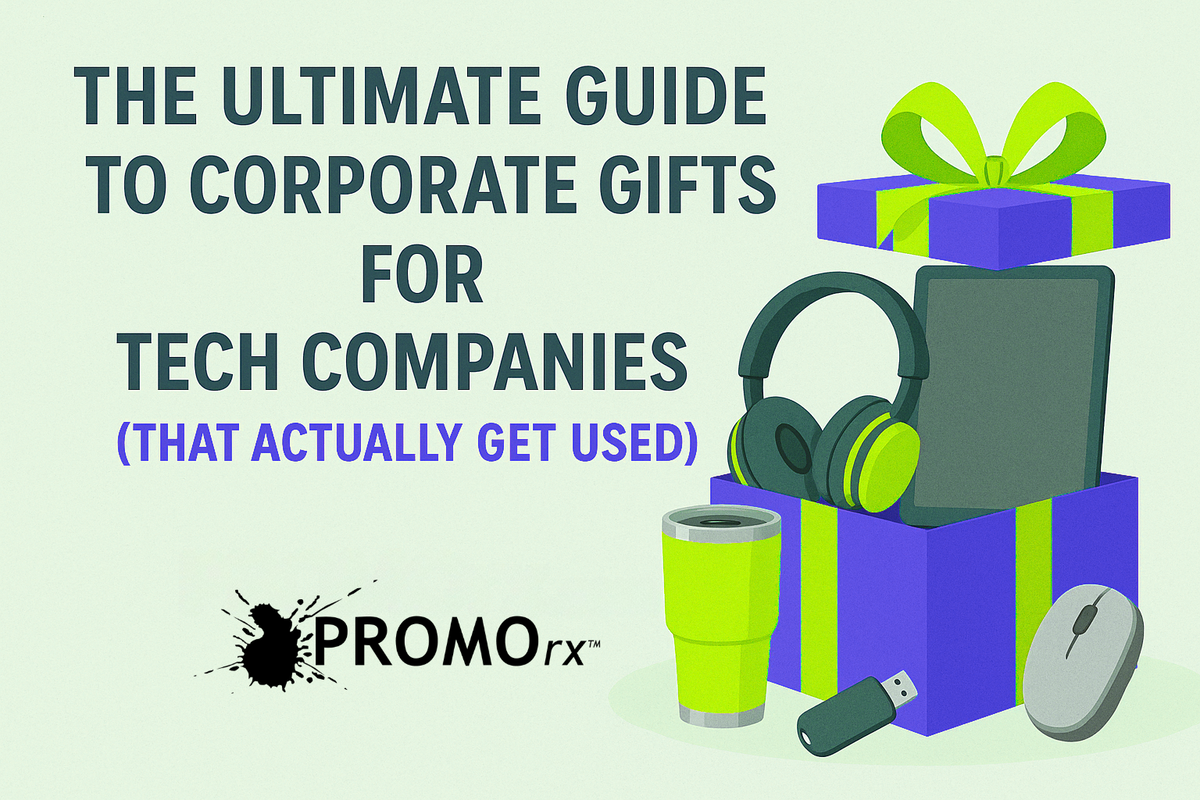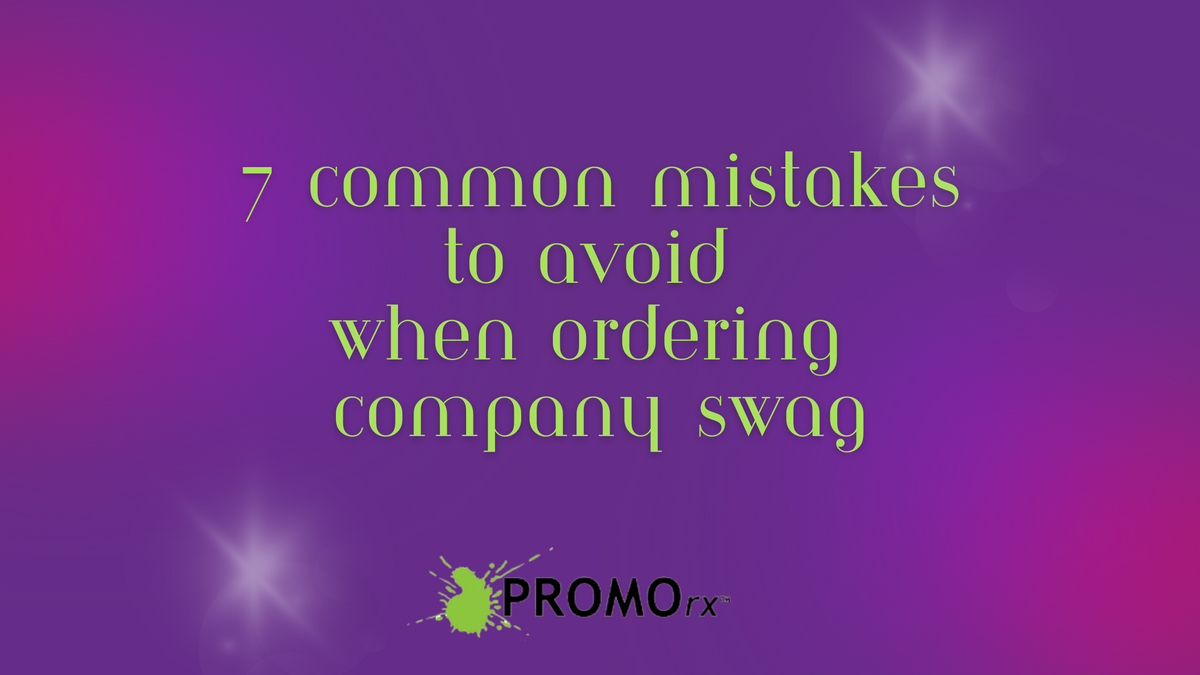Swag is NOT the Enemy: Fast Company Article the Rest of the Story

Yes, I’ve seen it.
What am I referring to? This Fast Company article that addresses the promotional swag industry, cheap products, and the environment. Many PROMOrx clients (and personal friends), sent me the link asking to hear my take on the article because...well, they knew I’d have one!
And while I’m always eager to share my thoughts on just about anything, I’m more interested in making readers aware of the other side. The Fast Company article laid out some very specific arguments regarding the promotional industry, and there may be truth to some of those; however, I think the old cautionary tale of “just because you read it on the Internet doesn’t make it true” comes into play here, and I’d like to dispel some of the mistruths that I believe are adding fuel to the fire.
As the old broadcaster Paul Harvey used to say, “you're going to hear the rest of the story.”
To begin, let’s address some specifics in the article:
Point 1: “And Goodwill doesn’t typically take random, flimsy tote bags. So every few months, I gather them and throw them out.”
Goodwill will actually take almost anything unless it’s been recalled, banned, or doesn’t meet current safety standards. For items like computers, vehicles, and mattresses: it’s requested you contact your local Goodwill first.

The last time I checked, tote bags, even the flimsy ones, haven’t been recalled, banned, or considered hazardous. Plus, Goodwill uses fabric from clothing and tote bags that won’t sell as an income generator. Those items are sold by the pound to textile recyclers based on this HuffPost article.
Point 2: “There are large companies in this space, including 4imprint, which made $608 million in 2017, Staples Promotional Products, which made $592.9 million, and HALO Branded Solutions, which made $416.4 million.”
Actually, if you look at the numbers, these companies didn’t MAKE that much money in 2017. Click on the article referenced, and you will see that those are SALES figures.
Point 3: “You can get insulation for around $2, totes that mimic LL.Bean’s iconic canvas bags for just over $3, and bags that look a little like luxury Longchamp Le Pliage bags for just over $7.”
After 19 years in the promotional products business, my mantra has been that the details matter, and the author of the Fast Company article missed quite a few of those details.
First of all, the totes that mimic L.L.Bean’s iconic canvas bag for $3 referenced in the article are made from polyester, not cotton canvas like the L.L.Bean bag. The price is actually $4.74 each and that’s for an order of 1,000 bags. That price doesn’t include shipping. Add all of that up, and you have a wee bit more than $3 each.
Point 4: “...these companies could consider making their products domestically.”

Snap. Yep. Let’s find American supply chains, facilities, and workers. I would personally love to find more made in America items -- promotional products or personal items for my home -- BUT, it’s just not that easy. (Although, I recently found a recycled glass pendant for my kitchen made by an American company! ) Way before his time, my father embarked on a mission to buy American-made. He gave up on many items simply because they weren’t available. An all or nothing attitude just doesn’t work in many categories.
Point 5: “What if you left your next conference or trade show without heaps of notepads, pens, and USB drives stuffed in a cheap tote bag, all of which will eventually end up in the trash?”

Notepads don’t typically end up in the trash. They’re one of many swag items that are used. Pens: What about refillable pens? There are several. And sit down, shut up, there are recycled pens MADE IN AMERICA.
USB drives? Okay, I’ll give the writer that one. We certainly sell them and I know of none made in the USA. I’m still amazed at how many USBs are ordered. With so much sitting in the cloud and many healthcare organizations forbidding them, I’m personally puzzled.
Point 6: “Instead, consider offering experiences.”
In a perfect world, with a major budget, this works. For smaller companies, notepads and pens are all they can afford.
As the owner of PROMOrx, I’ve removed some of the most egregious environmental offenders from our curated website throughout the years, all of which is based on my personal beliefs. There are those who say if I have customers who want to purchase these products, I should sell them. I don’t. My business. My rules.
As a company, we try to point clients to environmentally friendly options. Do they always take our advice? The obvious answer is: No, they don’t.
We walk a fine line in providing our clients with what they want and my personal take on environmental issues. We’ve deleted most of the pink plastic items for Breast Cancer Awareness, single use plastic bags (be sure and check out this conference bag for a peek at the PROMOrx commitment to green), and single use bottled water - they’ve been replaced with reusable, multi-use water bottles.

I personally use, and encourage clients to purchase, metal, double wall, insulated water bottles because they are reusable. However, if you take a look at the lids on these bottles, what lurks there? Plastic.
It’s much like at home: I prefer glass. But there are plastic items in my kitchen and bathrooms that I’ve used for years. I consider myself pretty green. We have an electric car. We got rid of most of the grass in our landscaping to conserve water. We use metal or glass and very little plastic. Our recycling volume is larger than our true trash volume.
But...there’s still plastic, and while we (as a collective whole) are still working on addressing the issues revolving around the use and manufacturing of plastic, it’s still a problem for our environment.
We all need to do our part. It’s like dieting: eliminating one “bad food choice” from your diet can eventually set you on the course for changing your overall eating habits. We can apply the same to our lifestyle choices. If we all just pick one thing that is important to us - you know, that one thing that really fires us up - and then make the choices to execute those changes, we can set into motion the necessary steps to bigger, more long lasting change.
Are we going to solve the world’s plastic problem overnight? Absolutely not. However, we can begin now, by making small - or even big - eco-friendly changes, contributing to a positive take on the matter of our environment and the effects our marketing choices are having on it.

Comment below with your thoughts on this issue. Is the environment something you consider when purchasing promotional products for your company? Think back, how many of your promotional items do you think have ended up in the landfill? Would you spend more money on products made in America, even at the risk of bumping up your budget?
Blogger: Vickie MacFadden, the PROMOrx.com owner. I'm a tell it like it is Southerner who loves tech, electric cars, and suffers from insatiable curiosity. I'm the author of the infamous 5.5 Ways to Know if Your Company Swag Sucks Vickie at PROMOrx dot com




